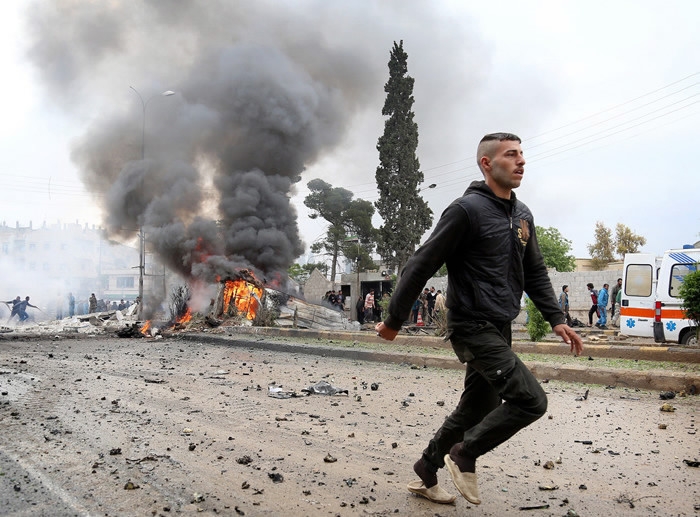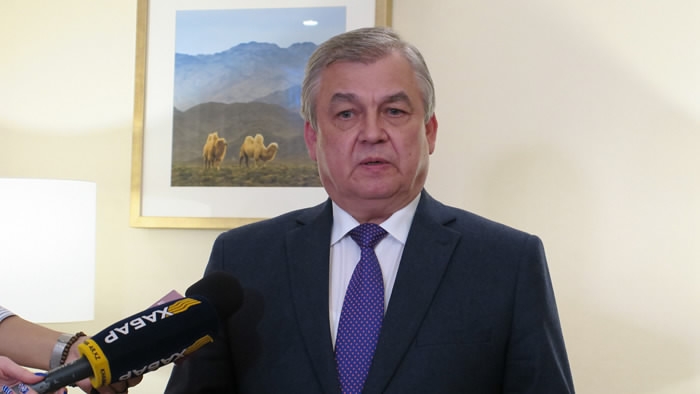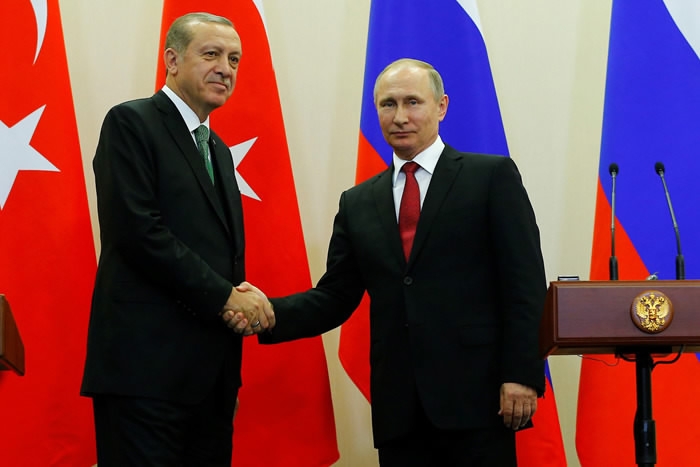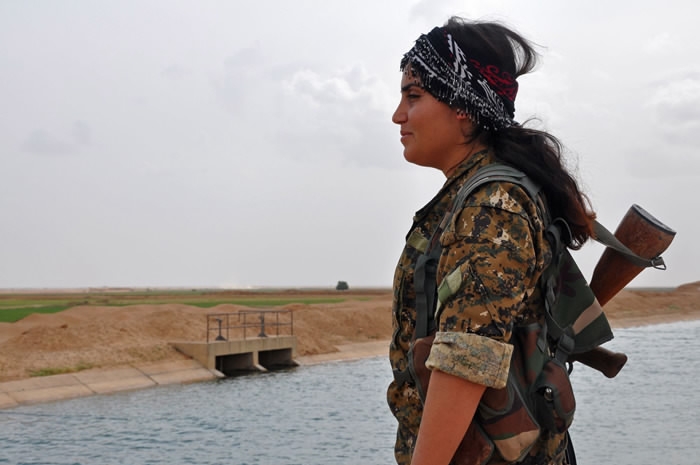Russia, Turkey and Iran signed a memorandum on creating four safe zones in Syria at a new round of peace talks in the Kazakh capital Astana on Thursday, but the Syrian opposition delegation refused to accept the deal, according to Reuters.
The four safe zones will cover all of Idlib Province, as well as parts of Aleppo, Latakia and Homs, the Turkish foreign ministry revealed, adding that all use of weapons would be banned in those areas while humanitarian aid would be allowed to be brought in.

People are seen at the scene of blast after bomb-laden vehicle attacked near interim government building in Azaz district of Aleppo, Syria on May 3, 2017. /VCG Photo
UN Special Envoy for Syria Staffan de Mistura hailed the deal as a step in the right direction towards a real cessation of hostilities. "Today in Astana I think we have been able to witness an important promising positive step in the right direction in the process of de-escalation of the conflict," he said.
Meanwhile, Russia's Presidential Envoy for Syrian Settlement Alexander Lavrentyev said Moscow was ready to send observers to the safe zones, and Syria's chief negotiator said the country supported the Russian initiative.

Russian President Putin's special envoy to Syria Alexander Lavrentiev speaks to press members after a session of the first day of fourth round of Syria peace talks in Astana, Kazakhstan on May 0, 2017. /VCG Photo
Commenting on the Syrian situation earlier on Thursday, Chinese Foreign Ministry spokesman Geng Shuang stressed that China supported efforts that would help defuse tensions, consolidate a ceasefire and promote political solutions to the issue.
"Syria's sovereignty and territorial integrity should be protected and respected," Geng added.
However, the Syrian opposition delegation rejected the deal. They had earlier walked out of the negotiation and shouted angrily, briefly interrupting the signing ceremony but later returned. The rebels argued that the safe zones would threaten Syria's territorial integrity and said they would also not recognize Iran as a guarantor of the peace plan.
"We are against the division of Syria. As for the agreements, we are not a party to that agreement and of course we will never be in favor (of it) as long as Iran is called a guarantor state," opposition delegate Osama Abu Zaid said, adding that there is "a huge gap" between Russia's promises and actions.
CGTN's Alaa Ebrahim reported that the safe zones would "put the rebels in the face of a grave challenge to fight against their closest ally Nusra front Al-Qaeda Syrian affiliate."
Safe zone: 'Key feature of post-Cold War military landscape'
At a joint press conference with Turkish President Recep Tayyip Erdogan on Wednesday, Russian President Vladimir Putin said "the creation of safe zones should lead to further pacification and cessation of hostilities," adding that the safe zones should become no-fly areas if fighting on the ground stops entirely.
"Ultimately this process should lead to the complete restoration of the country's territorial integrity," said Putin, as he met his Turkish counterpart in the Black Sea resort of Sochi.

Turkish President Recep Tayyip Erdogan (L) and Russian President Vladimir Putin (R) shake their hands ahead of a joint press conference after their meeting at State Residence of Russian President in Sochi, Russia on May 3, 2017. /VCG Photo
According to a draft proposal obtained by AFP, the creation of the safe zones aims to "put an immediate end to the violence" and "provide the conditions for the safe, voluntary return of refugees" as well as the immediate delivery of relief supplies and medical aid.
"The safe zone strategy has been a key feature of the post-Cold War military landscape," Samer Abboud, assistant professor of International Studies at Arcadia University in Pennsylvania, wrote in a commentary on Aljazeera in February.
He said a no-fly zone was maintained by the US and the UK in Iraq after the Gulf War in 1990s and similarly, the United Nations set up six safe zones in Bosnia and Herzegovina in 1993.

A female fighter from the Syrian Democratic Forces (SDF), which consists of an alliance of Kurdish and Arab fighters, stands near Tishreen Farms, some 17 kilometers north of Raqa on May 2, 2017. /VCG Photo
"The logic of the safe zone in both conflicts was to create secure, contained areas in which displaced people could flee and receive protection from violence," Abboud wrote.
Proponents of safe zones in Syria believe they can "stem the refugee crisis" and "keep most Syrians close to their homes," he said.
Nevertheless, Abboud described the idea as "a solution to the symptom and not the larger problem" and called for "much more substantive and comprehensive talks" that lead to "a serious process to end the conflict."
Related stories:
3658km










